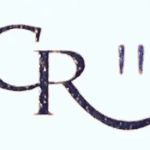What to Do if Your Dental Appliance Breaks Suddenly
- Understanding Dental Appliances
- Common Causes of Breakage
- Steps to Take When Your Appliance Breaks
- When to Contact a Dentist
- Preventive Measures for Dental Appliances
- Emergency Dental Appliance Repair Options
Understanding Dental Appliances
Dental appliances are devices that are used to improve dental health, such as braces, retainers, dentures, and bridges. They are essential in addressing various dental issues like misalignment, tooth loss, or even jaw problems. Although these appliances are designed to be durable, they can occasionally break or get damaged. Understanding the role and structure of these appliances is crucial for knowing how to handle them when something goes wrong. In this article, we will explore what steps to take if your dental appliance breaks and how you can manage the situation.
Common Causes of Breakage
Dental appliances can break for a variety of reasons, and understanding these causes can help you prevent such issues in the future. Some common causes of breakage include:
- Accidental Impact: If you accidentally drop your appliance or it faces a blow to the face, it can easily break or get out of shape.
- Wear and Tear: Over time, dental appliances can wear down, especially if not properly maintained or cleaned.
- Improper Use: Using the appliance improperly or not following the dentist's advice can lead to damage.
- Age and Material Fatigue: Some materials used in dental appliances may become brittle over time and prone to breaking.
Recognizing these factors can help you avoid unexpected damage. However, accidents happen, and it's important to know how to respond if your dental appliance breaks suddenly.
Steps to Take When Your Appliance Breaks
If your dental appliance breaks unexpectedly, staying calm and taking immediate action can help prevent further damage. Here's what you should do:
- Assess the Damage: Check the extent of the damage. Is the appliance completely broken, or is it just a small crack? This can help you decide whether it's an emergency or not.
- Stop Using It: If the appliance is broken or causing discomfort, stop using it immediately to avoid further injury or damage.
- Clean the Appliance: If possible, clean the appliance gently to prevent any food particles or bacteria from causing additional issues. Use warm water and mild soap.
- Protect the Area: If the break has affected your teeth or gums, use a wax or cushion over sharp edges to prevent irritation.
Taking these initial steps can help you manage the situation temporarily until you can get professional help.
When to Contact a Dentist
If your dental appliance is broken, it is essential to contact your dentist as soon as possible. In some cases, the appliance may be fixable with a quick adjustment, but in others, a replacement may be necessary. Here’s when you should call your dentist:
- Severe Damage: If the appliance is severely broken or no longer fits properly, it’s important to seek professional help immediately.
- Pain or Discomfort: If you experience pain or discomfort, it’s a sign that your appliance needs immediate attention.
- Inability to Use the Appliance: If you can't use your appliance at all or it affects your speech, chewing, or daily routine, it’s time to consult your dentist.
Your dentist will be able to assess the situation and offer the best solution for your specific needs.
Preventive Measures for Dental Appliances
While accidents can happen, you can reduce the likelihood of your dental appliance breaking by following these preventive tips:
- Follow Care Instructions: Always follow your dentist's instructions for using and maintaining your appliance.
- Handle with Care: Avoid dropping your appliance, and store it in a safe place when not in use.
- Regular Checkups: Schedule regular checkups with your dentist to ensure your appliance is in good condition.
- Proper Cleaning: Clean your appliance regularly using gentle products designed for dental appliances.
Taking these steps can help ensure that your appliance stays in good condition for as long as possible.
Emergency Dental Appliance Repair Options
If your dental appliance breaks unexpectedly and you can’t reach your dentist right away, there are some emergency repair options to consider:
- Temporary Fixes: Use dental wax or a soft material to temporarily protect the broken appliance and avoid injury.
- Visit a Dental Clinic: Some dental clinics offer emergency repairs or adjustments for broken appliances.
- Online Repair Services: Some companies offer mail-in services where you can send your appliance for repairs.
While these options may provide temporary relief, it’s still important to visit your dentist as soon as possible for a permanent solution.
If you need more information or assistance, feel free to visit Dentistry Toothtruth for more dental appliance solutions and tips.







 Noll Family Dentistry4.0 (95 review)
Noll Family Dentistry4.0 (95 review) Dr. David R. Resch DDS0.0 (0 review)
Dr. David R. Resch DDS0.0 (0 review) Decatur Orthodontics5.0 (379 review)
Decatur Orthodontics5.0 (379 review) Reynolds, Clinton DDS5.0 (24 review)
Reynolds, Clinton DDS5.0 (24 review) Gentle Dental Rio Vista4.0 (152 review)
Gentle Dental Rio Vista4.0 (152 review) Little Big Smiles Pediatric Dentistry of Fort Myers5.0 (130 review)
Little Big Smiles Pediatric Dentistry of Fort Myers5.0 (130 review) The Importance of Oral Health Education During Pregnancy for a Healthy Pregnancy
The Importance of Oral Health Education During Pregnancy for a Healthy Pregnancy Best Tips for Brushing Your Teeth Properly for Healthy Gums: Essential Techniques for Oral Health
Best Tips for Brushing Your Teeth Properly for Healthy Gums: Essential Techniques for Oral Health Why Skipping Dental Checkups Can Lead to Bigger Oral Health Problems
Why Skipping Dental Checkups Can Lead to Bigger Oral Health Problems Advantages of Porcelain Dental Restorations
Advantages of Porcelain Dental Restorations How Can Diabetes Cause Tooth and Gum Problems? Preventing and Managing Oral Health Issues
How Can Diabetes Cause Tooth and Gum Problems? Preventing and Managing Oral Health Issues Healthy Habits for Promoting Good Oral Health and Hygiene: Tips for a Healthy Smile
Healthy Habits for Promoting Good Oral Health and Hygiene: Tips for a Healthy Smile